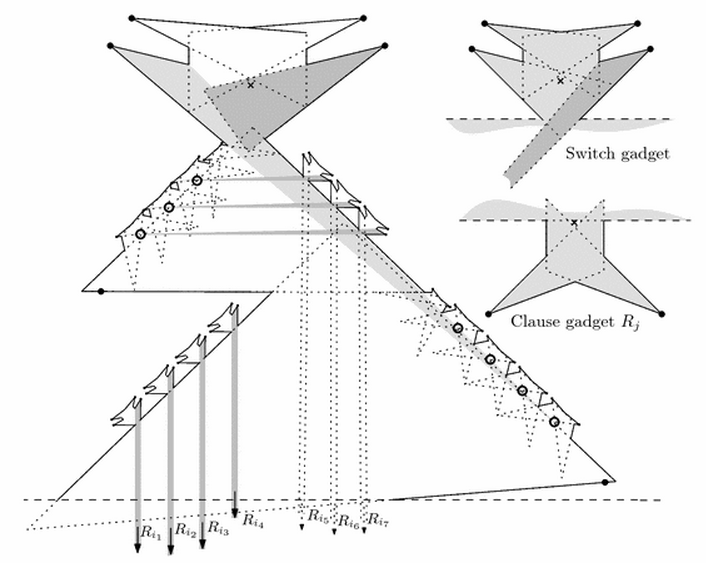After reading many papers about problems of minimum polygon covering, I found out that there are four different types of units that are considered for covering polygons, in increasing order of generality: squares, rectangles, convex shapes and star shapes.
In theory, there can be many other covering units, for example: it is possible to cover a polygon with triangles (this is different than the problem of triangulation because the units in a covering may overlap), pentagons, hexagons... but, I haven't found any paper discussing such covering problems.
My question is: are you aware of any papers discussing the problem of finding a minimum covering of a polygon with shapes other than the four classes above?
I am particularly interested in covering a polygon with right-angled isosceles triangles, isolateral triangles or other regular polygons.
[NOTE: Cross-posted from cs.SE after I received the Tumbleweed badge for it]

